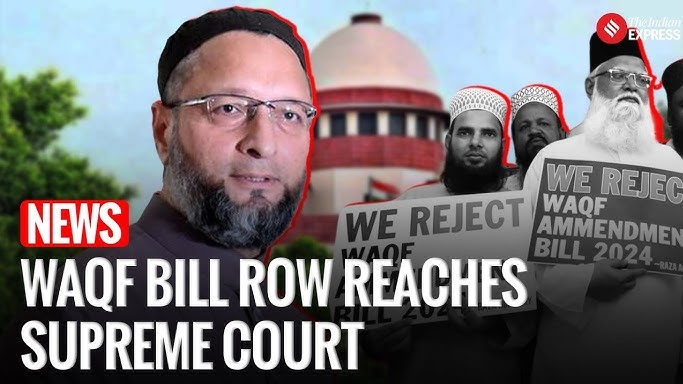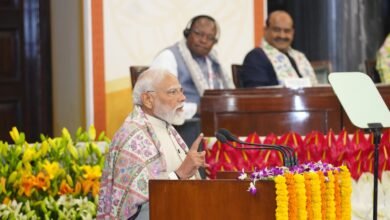Asaduddin Owaisi challenges Waqf bill in Supreme court
News Mania Desk / Piyal Chatterjee / 4th April 2025

AIMIM leader Asaduddin Owaisi has approached the Supreme Court contesting the Waqf Amendment Act, after Congress MP Mohammad Jawed, who was the initial petitioner against the law. Owaisi’s petition contends that the amendment violates the constitution and encroaches upon the essential rights of the Muslim community.
The challenge from the MP of Hyderabad occurred just days after he ripped a copy of the bill in Lok Sabha. On Wednesday, Owaisi vehemently criticized the Waqf (Amendment) Bill in the Lok Sabha, labeling it an “assault on the beliefs and religious customs of Muslims.” In a theatrical demonstration, Owaisi metaphorically ‘ripped’ the bill, comparing his action to Mahatma Gandhi’s resistance against unfair laws.
Significantly, the petition submitted by Jawed asserted that the act breaches Articles 14, 15, 25, 26, 29, and 300A of the Constitution, which ensure equality before the law, freedom of religion, safeguarding of minority rights, and the right to property. Jawed, who represents Kishanganj in Bihar, is also a Congress whip in the Lok Sabha and was part of the Joint Parliamentary Committee that reviewed the Waqf (Amendment) Bill, 2024.
The plea states that the revised law enforces limitations on the Muslim community that are absent in the administration of other religious trusts. “For instance, while Hindu and Sikh religious trusts continue to enjoy a degree of self-regulation, the amendments to the Waqf Act, 1995, disproportionately increase state intervention in Waqf affairs. Such differential treatment amounts to a violation of Article 14,” it reads.
The petition also challenges the clause that introduces restrictions on creating new Waqfs based on the duration of religious practice. “Such a limitation is unfounded in Islamic law, custom or precedent and infringes upon the fundamental right to profess and practise religion under Article 25,” the plea reads.
The petitioner contends that the limitation discriminates against new converts to Islam wanting to allocate property for religious or charitable purposes, breaching the right to equality and non-discrimination as stated in Article 15.
Jawed also opposes the suggested alterations to the makeup of the Waqf Board and Central Waqf Council that would involve non-Muslim participants. The petition stated that this constitutes an intrusion into religious governance and is inconsistent with Hindu religious organizations, which are exclusively managed by Hindus.
“The selective intervention, without imposing similar conditions on other religious institutions, is an arbitrary classification,” the petition reads






